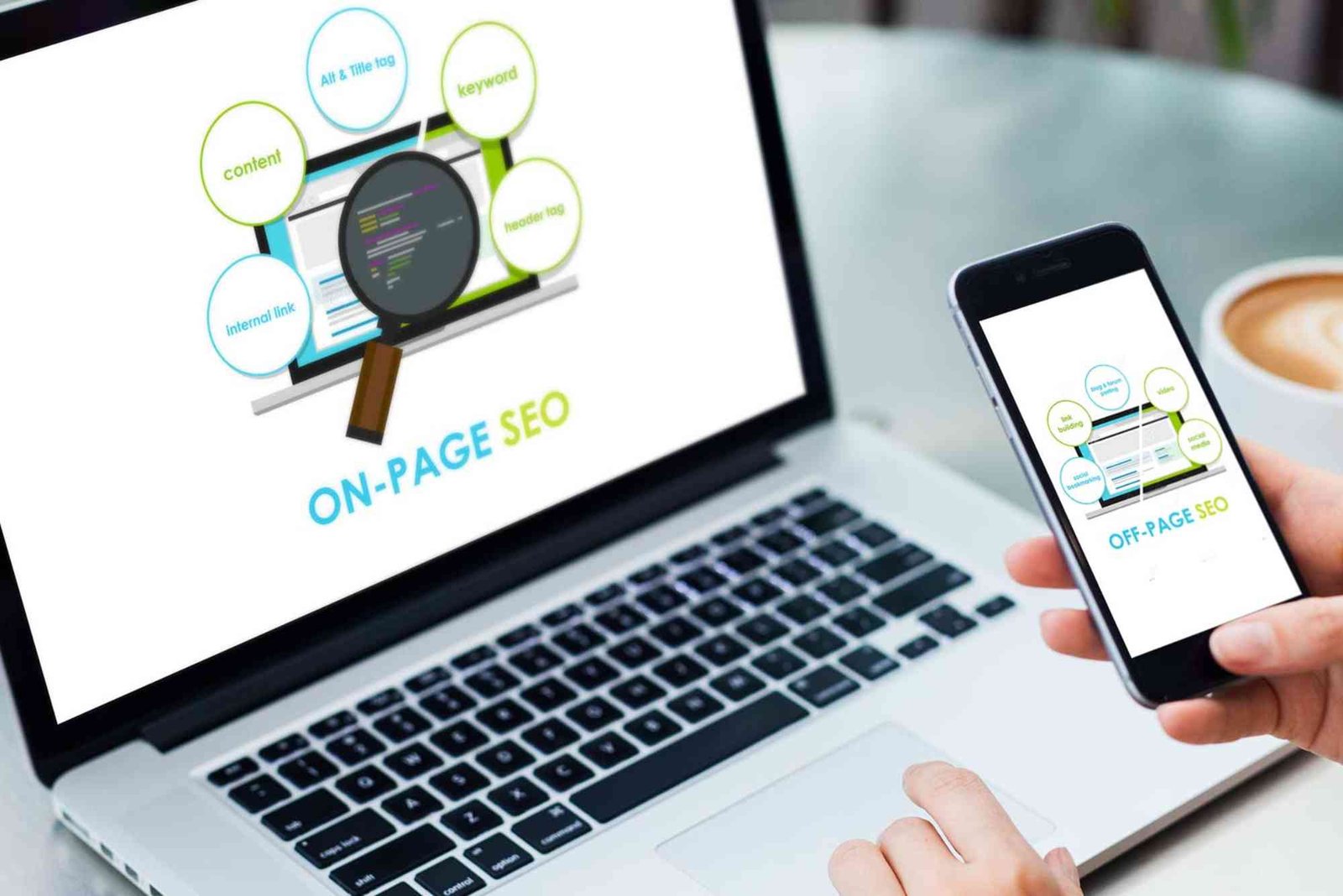Introduction
If you’ve ever wondered how websites appear at the top of Google search results, the answer lies in SEO. Understanding what is SEO — practical tips and expert advice can transform your online presence, attract organic traffic, and improve your brand’s credibility. Whether you’re a beginner or a business owner looking to expand online, mastering SEO is essential in today’s digital landscape.
Search Engine Optimization, commonly known as SEO, is the process of improving your website to make it more visible in search engines like Google, Bing, or Yahoo. The better your visibility, the more likely you are to attract attention and convert visitors into customers. But SEO is more than just keywords and backlinks — it’s about understanding your audience and creating valuable content that meets their needs.
Understanding What SEO Really Means
SEO is both an art and a science. It involves optimizing various elements of your website — from content and keywords to technical performance — to rank higher on search engine results pages (SERPs). When users search for something online, search engines scan millions of pages to deliver the most relevant results. Your goal as a website owner is to ensure your site matches those queries better than your competitors.
There are three main pillars of SEO: on-page, off-page, and technical SEO. Each plays a unique role in determining how well your website performs online.
The Core Components of SEO
On-Page SEO: Crafting Quality and Relevance
On-page SEO refers to the strategies used within your website to help search engines understand what your content is about. This includes optimizing title tags, meta descriptions, headers, and internal linking. Using keywords naturally within your text, such as what is SEO — practical tips and expert advice, helps search engines associate your content with user intent.
Content quality is another crucial aspect. Search engines prioritize content that provides real value. Write comprehensive, informative, and well-researched articles that answer your audience’s questions. For example, a detailed guide on What Is SEO should explain both the basics and advanced techniques in simple, actionable terms.
Off-Page SEO: Building Authority and Trust
Off-page SEO focuses on factors outside your website that influence your ranking, primarily backlinks. When reputable sites link to your pages, it signals to search engines that your content is trustworthy and valuable. However, quality matters more than quantity. A single backlink from a credible site like Read more on www.hubspot.com can be more powerful than dozens from unknown sources.
Social media engagement and brand mentions also contribute to off-page SEO. When people talk about your brand or share your content, it builds awareness and credibility — essential factors for better rankings.
Technical SEO: Optimizing Performance and Usability
Technical SEO deals with the backend structure of your website. Search engines use bots to crawl and index pages, and a poorly optimized site can hinder that process. Ensuring fast loading times, secure HTTPS connections, mobile-friendly design, and proper URL structures improves both your rankings and user experience.
Use tools like Google Search Console to monitor site health, fix broken links, and identify crawl errors. Remember, even the best content won’t rank if search engines can’t access it properly.
Practical Tips to Master SEO
SEO might seem complex, but by following proven techniques, you can steadily improve your website’s visibility. Here are some practical and expert-backed tips to get started.
Focus on Search Intent
Every search query reflects a user’s intention — to learn, buy, or explore. Align your content with this intent. For example, if someone searches “how to do SEO,” they likely want step-by-step guidance. Craft articles that directly address such needs with clear, structured information.
Use Keywords Strategically
Keyword research is the foundation of SEO. Use tools like Google Keyword Planner or Ahrefs to find relevant terms your audience searches for. Incorporate your main keyword — what is SEO — practical tips and expert advice — naturally throughout your article. Avoid stuffing it; instead, use variations and synonyms for a natural flow.
Create Valuable Content Consistently
Content remains king in SEO. Regularly publish fresh, original, and insightful articles that help readers solve problems. Use real-life examples, data, and personal experiences to demonstrate expertise. Google rewards websites that provide consistent value with higher visibility.
Optimize for Mobile Devices
Over 60% of online searches come from mobile devices. A website that isn’t mobile-friendly risks losing both visitors and rankings. Use responsive design to ensure your content adapts to all screen sizes. Google’s mobile-first indexing also means mobile performance affects overall SEO.
Improve Page Speed
A slow website can frustrate users and increase bounce rates. Compress images, minimize code, and use caching to enhance load times. Tools like Google PageSpeed Insights can analyze your site and suggest improvements.
Use Internal Linking Wisely
Internal linking helps search engines understand your site structure and distributes link equity. It also guides users to related content. For instance, linking to What Is SEO Details within your posts creates a logical flow and encourages readers to explore more pages.
Track and Analyze Your Results
SEO is not a one-time effort — it’s an ongoing process. Use analytics tools like Google Analytics or SEMrush to monitor traffic, rankings, and user behavior. By understanding which pages perform best, you can refine your strategy for better results.
Expert Advice on Long-Term SEO Success
Achieving sustainable SEO success requires patience, adaptability, and continuous learning. Experts agree that focusing on user experience and value creation is more effective than chasing algorithms.
Prioritize User Experience (UX)
SEO and UX go hand in hand. A well-structured, visually appealing, and easy-to-navigate website keeps users engaged. Use clear menus, readable fonts, and logical content organization. When users spend more time on your site, search engines interpret it as a sign of quality.
Build E-A-T: Expertise, Authoritativeness, and Trustworthiness
Google’s E-E-A-T principle emphasizes the importance of credible and authentic content. To build trust, showcase author bios, cite credible sources, and update your content regularly. Sharing case studies or personal experiences also enhances authenticity.
Stay Updated with Algorithm Changes
Search engines frequently update their algorithms to deliver better results. Stay informed through credible SEO blogs or resources like HubSpot and Moz. Adapting quickly to changes ensures your strategies remain effective and compliant.
Common SEO Mistakes to Avoid
Even experienced marketers make errors that can harm rankings. Some common mistakes include keyword stuffing, using duplicate content, ignoring mobile optimization, and neglecting meta tags. Always review your site for broken links, outdated information, and poor readability.
Avoid focusing solely on rankings — instead, prioritize creating value for your audience. The more helpful your content, the more naturally it will attract organic traffic.
Future of SEO: What to Expect
SEO continues to evolve with technology. Artificial intelligence, voice search, and visual search are shaping the next phase of digital optimization. Search engines are becoming more conversational and user-focused. To stay ahead, businesses must embrace personalization and adapt content to match new search behaviors.
Structured data and schema markup are also gaining importance, helping search engines better interpret your content. Optimizing for featured snippets and “People Also Ask” boxes can dramatically improve visibility and click-through rates.
FAQs
What are the 3 main types of SEO?
The three main types of SEO are on-page SEO (content and keywords), off-page SEO (backlinks and authority), and technical SEO (website performance and structure).
How long does it take to see SEO results?
Typically, noticeable SEO results appear within 3–6 months, depending on your website’s age, competition, and consistency in optimization.
Can I do SEO myself?
Yes, anyone can learn the basics of SEO. With the right resources and consistent practice, you can effectively optimize your website without hiring an expert.
Is SEO better than paid ads?
SEO offers long-term benefits by building organic traffic, while paid ads provide quick visibility. Combining both strategies often yields the best results.
What are the best SEO tools for beginners?
Popular beginner-friendly SEO tools include Google Analytics, Google Search Console, Ubersuggest, and Ahrefs. They help with keyword research, tracking, and performance analysis.
Understanding what is SEO — practical tips and expert advice is the first step toward online growth. SEO is not just about ranking high on Google; it’s about connecting with your audience, providing valuable content, and building trust over time. By focusing on quality, relevance, and user experience, you can turn your website into a powerful marketing asset.
If you’re ready to strengthen your online presence, start implementing these SEO strategies today. Learn more through resources like What Is SEO and Read more on www.hubspot.com to continue your journey toward digital success.












